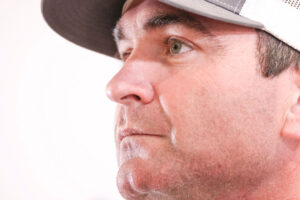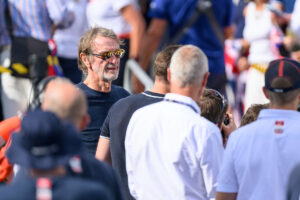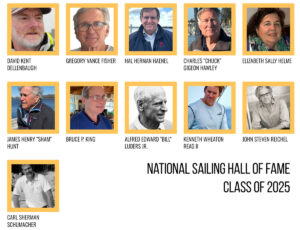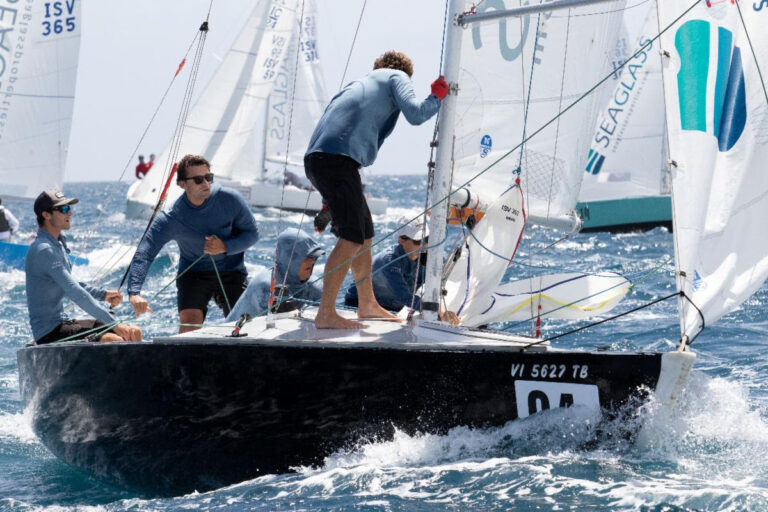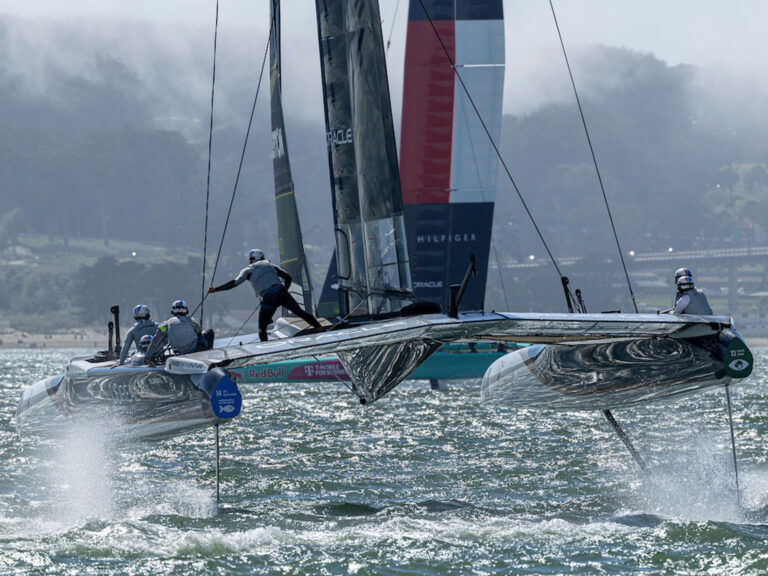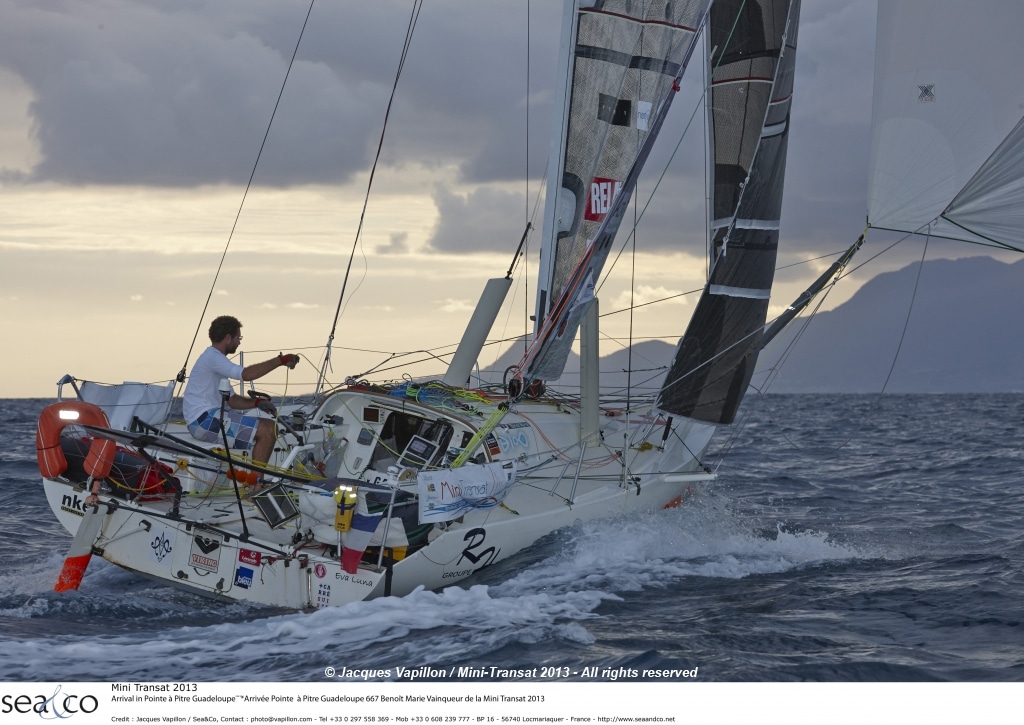
Benoit Marie
Just finishing the Mini Transat is a major feat for any sailor who dares brave the hell and fury the Atlantic Ocean can unleash on such a small boat. At the very least, surviving the trek invariably means getting beaten and tossed around for weeks on a 6.50-meter boat that merits its “Mini” name. The singular focus of just making it to the tropical waters of Guadeloupe by way of the Atlantic after leaving gray and cold Brittany, France, behind was certainly amateur sailor Benoit Marie’s goal. But as a surprise to himself, as well as those who follow the race, he arrived to port first, ahead of some of the world’s best Mini sailors.
Marie certainly paid his dues along the way. He was knocked unconscious when he fell in the cockpit, alone in the middle of the Atlantic. His boat broached several times. Like the rest of the fleet during the first leg between France and Spain, he had to steer his boat in 40-knot winds and 12-foot waves.
So how did this relatively inexperienced sailor accomplish what he did? It was a question of sailing fast yet safe, Marie says.
**
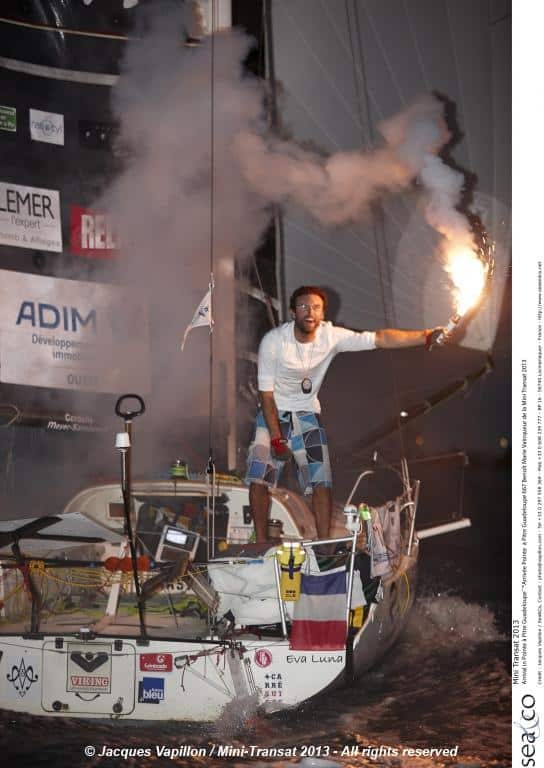
****Bruce Gain: It seemed that the trek was pleasant after leaving Sada?**
Benoit Marie: We had the wind blowing behind the whole way. We had very strong winds at the beginning, lighter winds in the middle, and then we got more of the strong winds again. Having the wind behind us like that was something I never would have thought would have been possible.
How much of the time did you keep your spinnaker up?
My big spinnaker was up most of the time during the second part of the race. I also sailed “butterfly” at an angle to the wind of 150 to 180 degrees. Sure, I did a few forced jibes, which was pretty crazy. I woke up a few times with the mast on the wrong side of the boat.
You were not among the favorites to finish first. What perceived weaknesses did you overcome to sail to Guadeloupe first?
My boat’s Proto design really likes to sail downwind. I knew it was a fast boat. I was very motivated before and during the race. It was full steam ahead all of the way.
When I got to the middle of the Atlantic Ocean, I wrote down in my journal that I no longer had an [inferiority] complex about anything and that there was no reason why I couldn’t win this race.
Consider Bertrand Delesne, who was probably the most skilled and experienced sailor in the Mini fleet and others who have a really high level of skill and sailing experience. Comparatively, I only have a year and a half of Mini Class sailing experience. I could have easily had an inferiority complex of being the rookie. But I eventually learned that I could sail as well as anybody in the fleet.
You spoke of some dark and lonely nights during the race. What were some of the most challenging moments you had to face?
It was when I fell on the boat about five days before I got to Guadeloupe and lost consciousness. I didn’t know if I had been knocked out for a few seconds or a few hours. I just woke up and found myself laying just a few inches from the water while the boat kept sailing 13 to 15 knots. I woke up and said to myself, “Just what in the [expletive] are you doing here?” I began to wonder if I had a something wrong physically that caused me to blackout like that and began to question my physical capacity to finish the race. It took maybe a day before I felt okay again and got my confidence back.
Just yesterday I was knocked down one way and then in another. The spinnaker was in the water. The whole thing was a big mess. At one point, I thought I would lose the mast. That was a little scary.
_
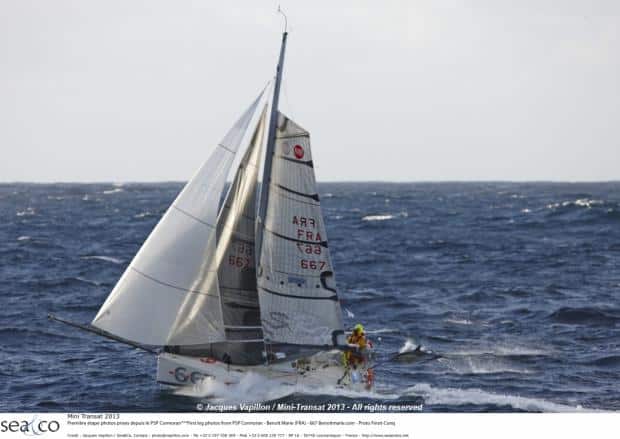
Jacques Vapillon/Mini Transat 2013_
What were some of the worst sea conditions you experienced?
I was in 40 knots of wind when approaching Spain [during the first leg] and 33 knots of wind for an extended period. At one point, I reached 19.5 knots while sailing butterfly. The sea-state was definitely huge and confused with waves over 12 feet. Definitely scary.
So at what point did you realize that you had a shot a winning the race?
The whole time I sailed as fast as I could, but I also sailed safe. After a few days, it was a bit hard knowing that I couldn’t sail as a fast as I could, but then, by VHF, I learned that I was ahead of the fleet in the top three. I then knew I was doing well and told myself that I needed to keep sailing that way. When I was in the middle of the Atlantic, I learned that I was second and then first a few days later. I then told myself that there was no reason why I could not win this race. I knew that I just had to keep sailing as I had been doing since the beginning.
So what are your plans now?
It’s too early too say. The fact that my boat just has my name on the side means that I need a sponsor. I hope winning this race will help.

